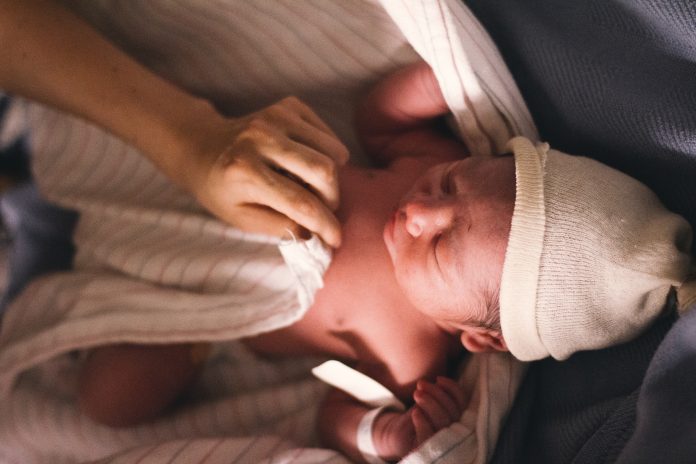Cesarean births are growing at “an alarming” rate in Romania, medical officials have warned, and the country now has one of the highest rates of C-section births in the world.
Sen. Emanuel Botnariu, a doctor on the Senate’s public health committee, says the procedure accounts for 60% of births in Romania.
“It is an alarm signal for everyone, doctors, patients, authorities, and international organizations who monitor us,” Agerpres quoted Botnariu as saying during a parliamentary committee debate Wednesday.
The head of the National Health Insurance body, Adela Cojan, called on doctors to convince women to opt for a natural birth.
“It’s up to doctors and specialists to try and persuade women who resort to Cesareans due to the fear of pain, that birth is a physiological act, a natural event, (involving) a midwife or doctor. When there are complications there is medical help,” she said.
Doctors say the number of C-sections could be slashed if women were better educated, epidurals were regularly offered to patients, and if all hospitals had midwifes to deliver babies in non-complicated cases.
Prof. Iuliana Ceausu, head of obstetrics at the Ion Cantacuzino public hospital in Bucharest, told universul.net that the high level of Cesarean deliveries in Romania is pushed up by private hospitals where they account for 80 to 90% of births.
Bogdan Tanase, head of the Alliance of Medics told universul.net: „A natural birth is preferable. Of course women have a choice, but for the mother, the child, and the economic system, it (natural birth) is better.” The National Health Insurance pays 2,700 lei to hospitals for a cesarean delivery and 1,600 lei for a natural delivery.
The spike in C-section births is part of a worldwide trend. Cesarean section delivery accounted for 21% of births globally in 2015, up from 12% in 2000, The Lancet, a respected medical journal reported.
The large increases in C-section use are occurring in middle-income countries for non-medical purposes such as Brazil and Turkey.
Doctors consider C-sections crucial when complications arise during birth, like bleeding, fetal distress and abnormal fetal positioning.
But Ceausu says “a Cesarean birth is not an alternative to natural birth. ”
“There are medical risks and risks for future pregnancies, that can affect reproductive health,” she said.
She said patient demand for C-Sections has grown in recent years due to “a lack of education.” Patients tell public hospitals “If you don’t give me a C-section, I will go private.”
Hospitals would see a reduction in C-sections if women were offered epidurals to relieve the discomfort of childbirth, she said. Epidurals are an optional procedure in Romania; anesthesiologists don’t always regard them as necessary.
In other European countries, such as the UK, France and Italy, Spain, Germany, the procedure is offered on a regular basis, while in Romania it’s the anesthesiologist not the patient that decides.
Ceausu said Cantacuzino Hospital a has 60 to 65% rate of C-sections, slightly above the national average, and higher than other Bucharest public hospitals, because it is a referral hospital, meaning it takes emergency and non-emergency cases from other hospitals.
“We have complicated cases, pregnancies with complications from diabetes, pregnancies from rural areas,” Ceausu said.
A woman was rushed to the hospital the night before in a distressed condition from Calarasi in southern Romania, another doctor said. The baby was delivered prematurely by C-section, weighing 950 grams at 25 weeks. The normal pregnancy is anything from 27 to 42 weeks.
Doctors also say there is a lack of midwives in hospitals in major cities who can deliver babies in non-complicated cases, which would ease the burden for doctors, as timing in vaginal deliveries is unpredictable.
Another doctor said: “When I was woken up in the middle of the night 25 years ago to assist with a birth, the midwife could help, now we don’t have that and it’s just doctors who deliver babies. “
The Lancet published a series of papers showing that 106 out of 169 countries have Cesarean section rates above the 10% to 15% of births thought to be optimal.
In at least 15 countries the rate exceeds 40%. In Brazil and Egypt, it’s 55.5%, while in Turkey it’s 53.1%.
In the UK, deliveries increased from 19.7% of births in 2000 to 26.2% in 2015.



















